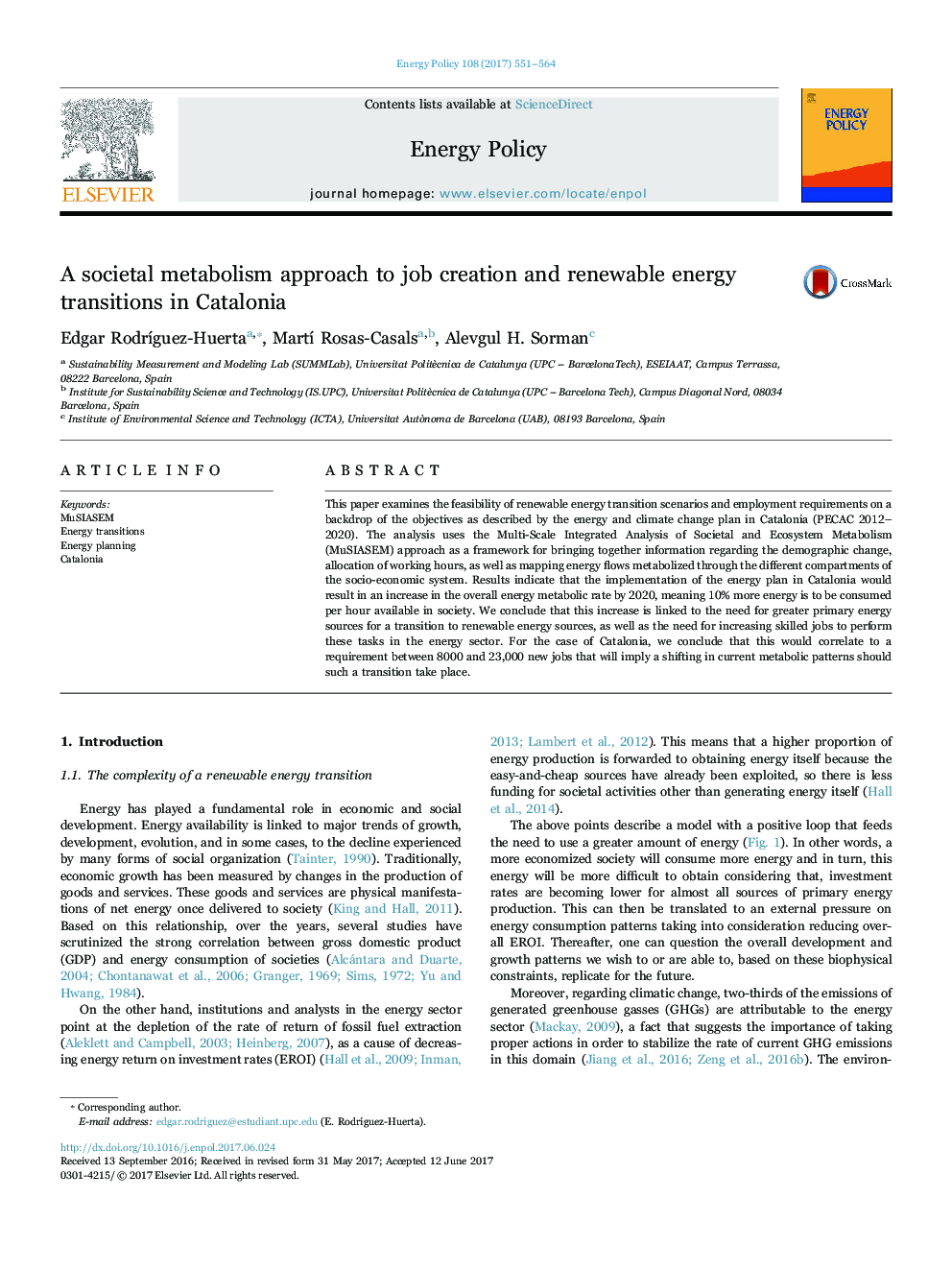| Article ID | Journal | Published Year | Pages | File Type |
|---|---|---|---|---|
| 5105626 | Energy Policy | 2017 | 14 Pages |
Abstract
This paper examines the feasibility of renewable energy transition scenarios and employment requirements on a backdrop of the objectives as described by the energy and climate change plan in Catalonia (PECAC 2012-2020). The analysis uses the Multi-Scale Integrated Analysis of Societal and Ecosystem Metabolism (MuSIASEM) approach as a framework for bringing together information regarding the demographic change, allocation of working hours, as well as mapping energy flows metabolized through the different compartments of the socio-economic system. Results indicate that the implementation of the energy plan in Catalonia would result in an increase in the overall energy metabolic rate by 2020, meaning 10% more energy is to be consumed per hour available in society. We conclude that this increase is linked to the need for greater primary energy sources for a transition to renewable energy sources, as well as the need for increasing skilled jobs to perform these tasks in the energy sector. For the case of Catalonia, we conclude that this would correlate to a requirement between 8000 and 23,000 new jobs that will imply a shifting in current metabolic patterns should such a transition take place.
Related Topics
Physical Sciences and Engineering
Energy
Energy Engineering and Power Technology
Authors
Edgar RodrÃguez-Huerta, Martà Rosas-Casals, Alevgul H. Sorman,
